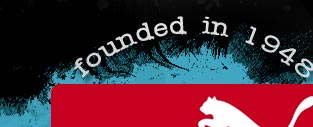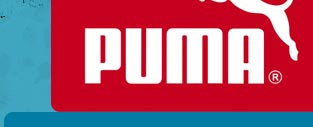Founded in Herzogenaurach, Germany in 1948, PUMA is one of the
world’s largest providers of Sportlifestyle footwear, apparel and
accessories. The PUMA Group owns the brands PUMA, Cobra Golf and Tretorn. The
company distributes its products in more than 120 countries and employs more
than 9,000 people worldwide. It is committed to working in ways that contribute
to the world by supporting Creativity, Sustainability and Peace, and by staying
true to the principles of being Fair, Honest, Positive and Creative in
decisions made and actions taken.
Over the years, PUMA has stayed true to its four cornerstones: heritage, sport,
technological innovation and design. The brand is focusing on bringing
distinctive designs and a global outlook to each product range by blending
influences of sport, lifestyle and fashion. This fusion is known as
“Sportlifestyle”. PUMA views sport as a philosophy on life –
one that emphasizes fitness, wellness and simply living an active life. Since
Sport can be different things to different people, PUMA approaches it in a
greater-lifestyle context, while not compromising performance. This is exactly
what the brand means when it speaks of “Sportlifestyle”.
In 1993, at the age of thirty, Jochen Zeitz was appointed chairman & CEO.
Zeitz has Spearheaded and held primary responsibility for the worldwide
restructuring of PUMA, which was in financial difficulties at the time. He
reached the first major milestone within
his first year as CEO, when PUMA delivered its first profitable performance
since 1986, posting consolidated sales of 210 million Euros with an EBIT of 23
million Euros in 1994. In 2009, PUMA reached net earnings of 128 million Euros
and consolidated sales of 2.5 billion Euros. The share price rose from 8.6
Euros in 1993 to an all time high of 350 Euros in April 2007. Zeitz managed to
turn PUMA from a low price brand into a premium Sportlifestyle company and one
of the top 3 brands in the sporting good industry by sticking to a long-term
development plan that he introduced in 1993. In 2007, French luxury group PPR,
one of the world’s top fashion and retail companies, acquired more than
60 percent of PUMA. With the support of PPR, PUMA plans to strengthen its
position as the leading company in the Sportlifestyle market with a continued
focus on long-term sustainable growth.
With the objective of being "The Most Desirable and Sustainable
Sportlifestyle Company”, PUMA's position as one of the few, true
multi-category brands is to be strengthened and the opportunities offered by
the sportlifestyle market are to be systematically exploited in all categories
and regions. As a multi-category supplier, PUMA is active in categories and
business fields/divisions that suit its unique brand positioning, and in which
permanent value increases can be achieved for the company. PUMAVision forms the
guiding principle for PUMA and their global partnerships and commitments. It
combines the concepts and initiatives of PUMA with respect to
„entrepreneurial sustainability” and „social
responsibility“. The four principles of PUMAVision, fair, honest,
positive and creative constitute the compass of
their company, employees, partners and target groups with respect to all their
decisions. PUMAVision reflects their vision of a better world - a world that is
more peaceful, safer, and more creative than the world that we know today.
|














